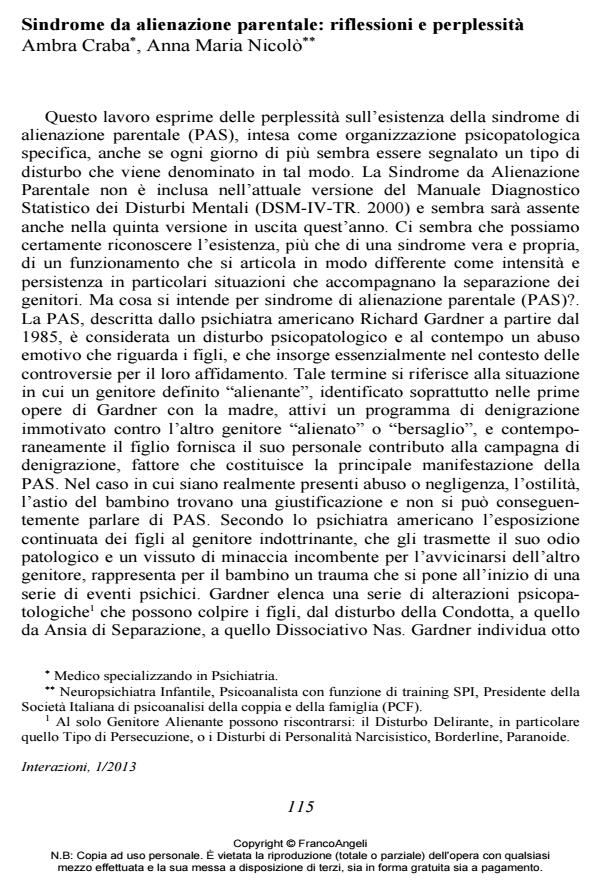Parental alienation syndrome: reflections and perplexities
Journal title INTERAZIONI
Author/s Ambra Craba, Anna Maria Nicolò
Publishing Year 2013 Issue 2013/1
Language Italian Pages 11 P. 115-125 File size 430 KB
DOI 10.3280/INT2013-001009
DOI is like a bar code for intellectual property: to have more infomation
click here
Below, you can see the article first page
If you want to buy this article in PDF format, you can do it, following the instructions to buy download credits

FrancoAngeli is member of Publishers International Linking Association, Inc (PILA), a not-for-profit association which run the CrossRef service enabling links to and from online scholarly content.
Almost thirty years ago, Richard Gardner first used the term "Parental Alienation Syndrome" (PAS) to describe a psychopathological disorder that is configured as an emotional abuse that involve children, and that primarily occurs in the context of child-custody disputes. This paper aims to provide a reflection on Parental Alienation Syndrome and, although it recognizes its importance and relevance as a clinical entity, it expresses doubts about its existence as a specific psychopathological organization.
Keywords: Parental Alienation Syndrome, parenting, co-parenting, emotional abuse, link.
Ambra Craba, Anna Maria Nicolò, Sindrome da alienazione parentale: riflessioni e perplessità in "INTERAZIONI" 1/2013, pp 115-125, DOI: 10.3280/INT2013-001009